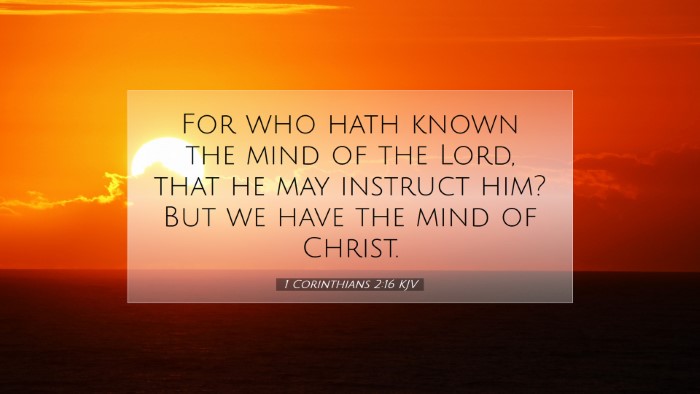Old Testament
Genesis Exodus Leviticus Numbers Deuteronomy Joshua Judges Ruth 1 Samuel 2 Samuel 1 Kings 2 Kings 1 Chronicles 2 Chronicles Ezra Nehemiah Esther Job Psalms Proverbs Ecclesiastes Song of Solomon Isaiah Jeremiah Lamentations Ezekiel Daniel Hosea Joel Amos Obadiah Jonah Micah Nahum Habakkuk Zephaniah Haggai Zechariah MalachiVerse
1 Corinthians 2:1 1 Corinthians 2:2 1 Corinthians 2:3 1 Corinthians 2:4 1 Corinthians 2:5 1 Corinthians 2:6 1 Corinthians 2:7 1 Corinthians 2:8 1 Corinthians 2:9 1 Corinthians 2:10 1 Corinthians 2:11 1 Corinthians 2:12 1 Corinthians 2:13 1 Corinthians 2:14 1 Corinthians 2:15 1 Corinthians 2:16

